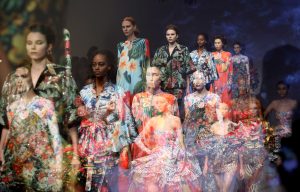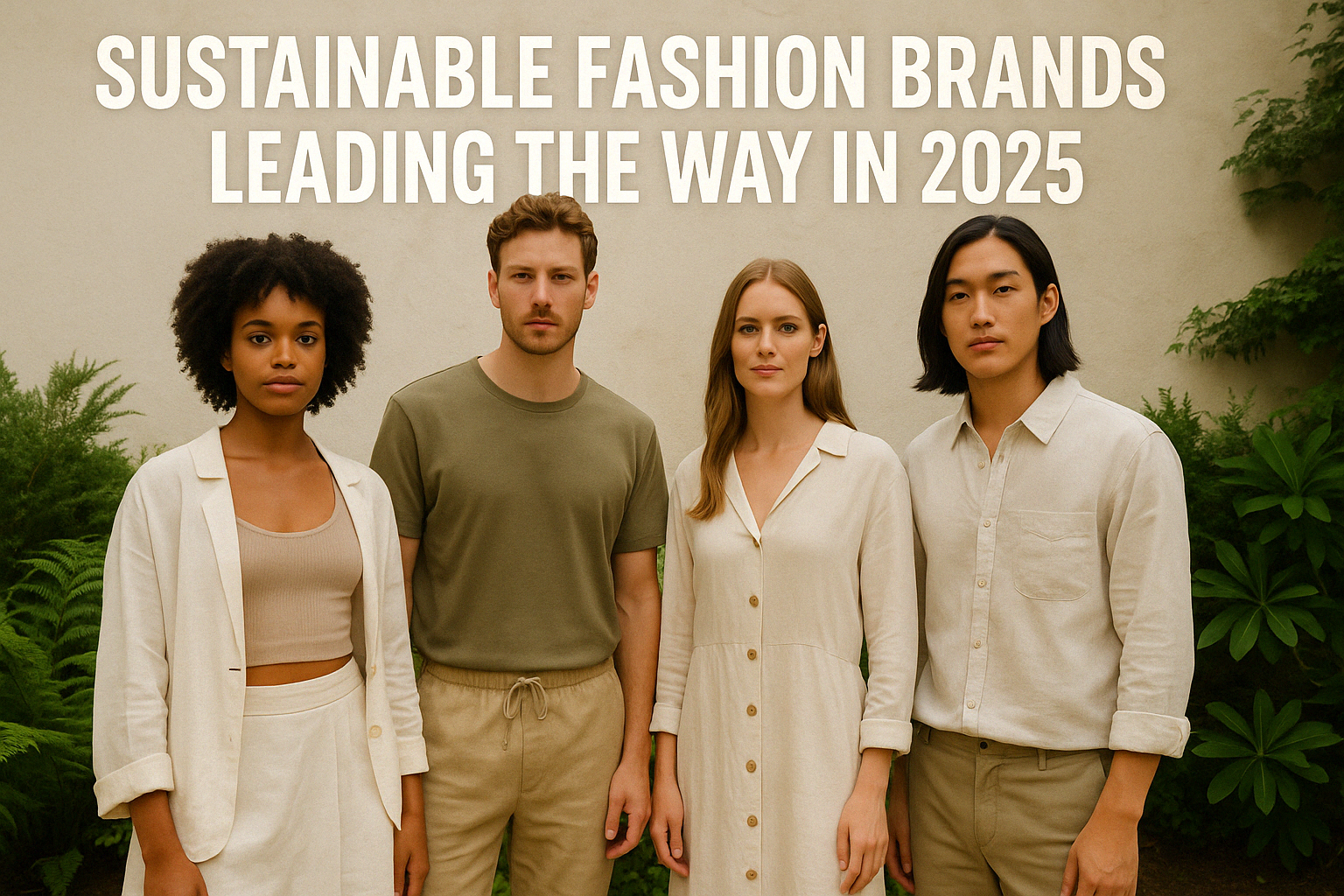Introduction
In the ever-evolving world of fashion, 2025 is shaping up to be a pivotal year. The winds of change have been blowing for a while now, and the shift is impossible to ignore. Fashion is no longer just about what you wear—it’s about what you stand for. Today’s shoppers want more than style; they want sustainability, ethics, and impact. That’s where sustainable fashion brands come in.
This article dives deep into the leading ethical fashion brands of 2025 that are answering those questions—and doing it beautifully. Let’s explore how these brands are rewriting the rules of fashion for a greener, fairer future.
What Is Sustainable Fashion?

At its heart, sustainable fashion is about responsibility. It’s a movement focused on producing clothing in a way that protects the environment, supports fair labor practices, and promotes long-term durability over fast, disposable trends.
This involves:
- Using organic materials like organic cotton, hemp, or bamboo
- Reducing water and energy consumption
- Ensuring fair wages and safe working conditions
- Designing timeless pieces that last
Unlike fast fashion, which emphasizes speed and low cost at any cost, eco-conscious fashion puts the planet and people first.
Top Sustainable Fashion Brands Leading in 2025

Here’s a closer look at the top names that are making a real difference this year.
1. Patagonia
A long-standing leader in eco-friendly fashion, Patagonia continues to set the standard. Known for its rugged outdoor gear, Patagonia is deeply committed to environmental activism. Their use of recycled polyester, fair labor practices, and corporate transparency make them a trusted name.
They also offer a Worn Wear program that allows customers to trade in or repair old clothes instead of tossing them—promoting true circular fashion.
2. Reformation
Chic, stylish, and sustainability-focused—Reformation is a brand for the modern eco-fashion lover. Based in Los Angeles, they create trendy women’s clothing using TENCEL™, organic cotton, and recycled materials. They also publish environmental impact reports for each item, so shoppers can make informed choices.
3. Stella McCartney
Pioneering the idea that luxury sustainable fashion can exist, Stella McCartney remains a bold leader. Her brand avoids fur, leather, and other animal-derived materials, relying on innovative textiles like mushroom leather and regenerated nylon. Stella’s designs are timeless, edgy, and always ethical.
4. Eileen Fisher
This American designer is known for her timeless, minimalist approach. But it’s not just about aesthetics—Eileen Fisher prioritizes fair trade labor, organic fibers, and clothing recycling programs. Their “Renew” and “Waste No More” initiatives transform used clothing into new pieces, embracing zero waste fashion.
5. Pact
If you’re looking for comfortable basics that don’t harm the planet, Pact is a go-to brand. They use certified organic cotton and run Fair Trade Certified™ factories. Their styles are simple, affordable, and perfect for everyday wear.
6. People Tree
Based in the UK, People Tree has been practicing sustainable fashion for over 30 years. With a strong commitment to fair wages, safe working conditions, and environmentally friendly materials, they’ve partnered with artisans worldwide to create beautiful, handmade fashion.
7. Veja
When it comes to sustainable sneakers, Veja is a game-changer. Using materials like wild rubber, recycled plastic, and organic cotton, they’ve created sneakers that are stylish, eco-conscious, and comfortable. Their ethical supply chain model is one of the most transparent in the industry.
8. Amour Vert
French for “green love,” Amour Vert is a brand that blends elegance with sustainability. They plant a tree for every tee sold and use non-toxic dyes and sustainable fabrics. Their limited-run collections reduce waste, and they focus on slow fashion rather than mass production.
What Makes These Brands Stand Out?

These brands don’t just talk the talk—they walk it. Here are the qualities that set them apart:
- Transparency: They share exactly where and how their clothes are made.
- Innovative fabrics: They use organic cotton, bamboo, TENCEL™, and recycled materials.
- Low carbon impact: Many invest in carbon offset programs or low-emission production.
- Fair trade certification: They protect the rights of garment workers.
- Circularity: Some offer clothing take-back programs or upcycle old clothes.
Tips to Shop More Sustainably
You don’t need to overhaul your entire closet overnight. Here are simple tips to make your wardrobe more eco-conscious:
- Buy less, choose well – Invest in quality pieces that last longer.
- Opt for organic – Look for organic cotton, hemp, or bamboo clothing.
- Shop secondhand – Vintage and thrift shops are great alternatives.
- Support circular brands – Pick brands with clothing return or repair programs.
- Avoid greenwashing – Look for real certifications like GOTS, Fair Trade, or OEKO-TEX.
Analysis Table: Why Consumers Choose Sustainable Fashion in 2025
| Reason | % of Shoppers | Key Insight |
|---|---|---|
| Concern for the planet | 68% | Fashion contributes to climate change and waste |
| Desire for better quality | 55% | Sustainable clothes are built to last |
| Interest in fair labor | 49% | Ethical production matters to younger shoppers |
| Social media influence | 38% | Eco-influencers are shaping buying habits |
| Transparency from brands | 30% | Shoppers want to know where and how things are made |
Challenges in Sustainable Fashion
While the industry is making progress, the road ahead isn’t without bumps.
- Higher Costs: Eco-friendly materials and fair wages often raise prices.
- Supply Chain Complexity: Tracking every part of the supply chain is hard.
- Limited Accessibility: Sustainable fashion isn’t always available in all regions.
- Greenwashing: Some brands use buzzwords without real change.
The Future of Fashion Is Circular

One of the most exciting shifts is the rise of circular fashion. This approach ensures that garments are reused, recycled, or composted at the end of their life instead of ending up in landfills.
Why This Movement Matters
Sustainable fashion isn’t just about clothes. It’s about the bigger picture—protecting our planet, valuing workers, and making thoughtful choices. It’s about saying no to waste and yes to quality. Yes to fairness. Yes to change.
Conclusion
In 2025, fashion is about so much more than style. It’s about impact. The top sustainable fashion brands we’ve highlighted—like Patagonia, Reformation, Stella McCartney, and Pact—are not just creating clothing. They’re creating change.
They’re showing us that fashion can be beautiful, responsible, and innovative at the same time. And the best part? You don’t need to be a celebrity or billionaire to support this movement. Every thoughtful purchase counts.




